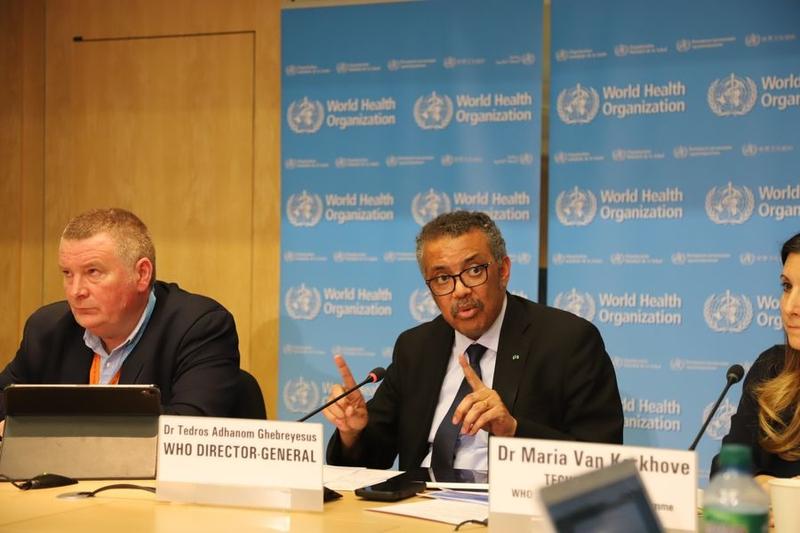 The World Health Organization (WHO) Director-General Tedros Adhanom Ghebreyesus (center) speaks at a daily briefing in Geneva, Switzerland, Feb. 27, 2020. (CHEN JUNXIZ/XINHUA)
The World Health Organization (WHO) Director-General Tedros Adhanom Ghebreyesus (center) speaks at a daily briefing in Geneva, Switzerland, Feb. 27, 2020. (CHEN JUNXIZ/XINHUA)
GENEVA - The World Health Organization (WHO) Friday raised the risk assessment of COVID-19 from "high" to "very high" at global level.
"Our epidemiologists have been monitoring these developments continuously, and we have now increased our assessment of the risk of spread and the risk of impact of COVID-19 to very high at a global level," said WHO Director-General Dr. Tedros Adhanom Ghebreyesus at a daily briefing.
READ MORE: WHO: Coronavirus outbreak 'getting bigger'
It (the "very high" alert level)'s a reality check for every government" to wake up and get ready for the virus
Michael Ryan, executive director, WHO Health Emergencies Program
WHO is concerned over the continued increase in the number of cases and affected countries over the last few days.
Denmark, Estonia, Lithuania, the Netherlands and Nigeria have all reported their first cases Thursday, with all the cases having links to Italy.
Despite the increase, there is no evidence of the virus spreading freely in communities, said the WHO chief, underlining that there's still the chance of containing it "if robust action is taken to detect cases early, isolate and care for patients and trace contacts."
"There is a window of opportunity (to contain the virus), although it's narrowing more and more by the day," the WHO chief said, reiterating that strategies starting from containment can work.
ALSO READ: Recovered coronavirus patients found not to be infectious
Also at the briefing, Michael Ryan, executive director of the WHO Health Emergencies Program, explained that raising the risk assessment at the global level "doesn't make a legal difference to the way in which states have to act," but essentially reflects what's happening at the global level.
"We're on the highest level of alert and risk assessment in terms of spread and impact, but that's not to alarm and scare people," he said.
Instead, it's to get countries to understand that it's in their control to contain the virus."It's a reality check for every government" to wake up and get ready for the virus, Ryan said.


